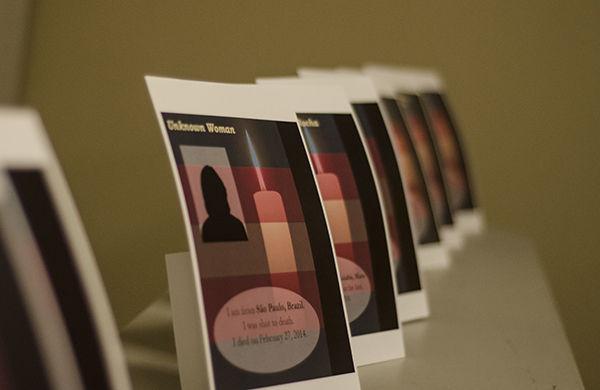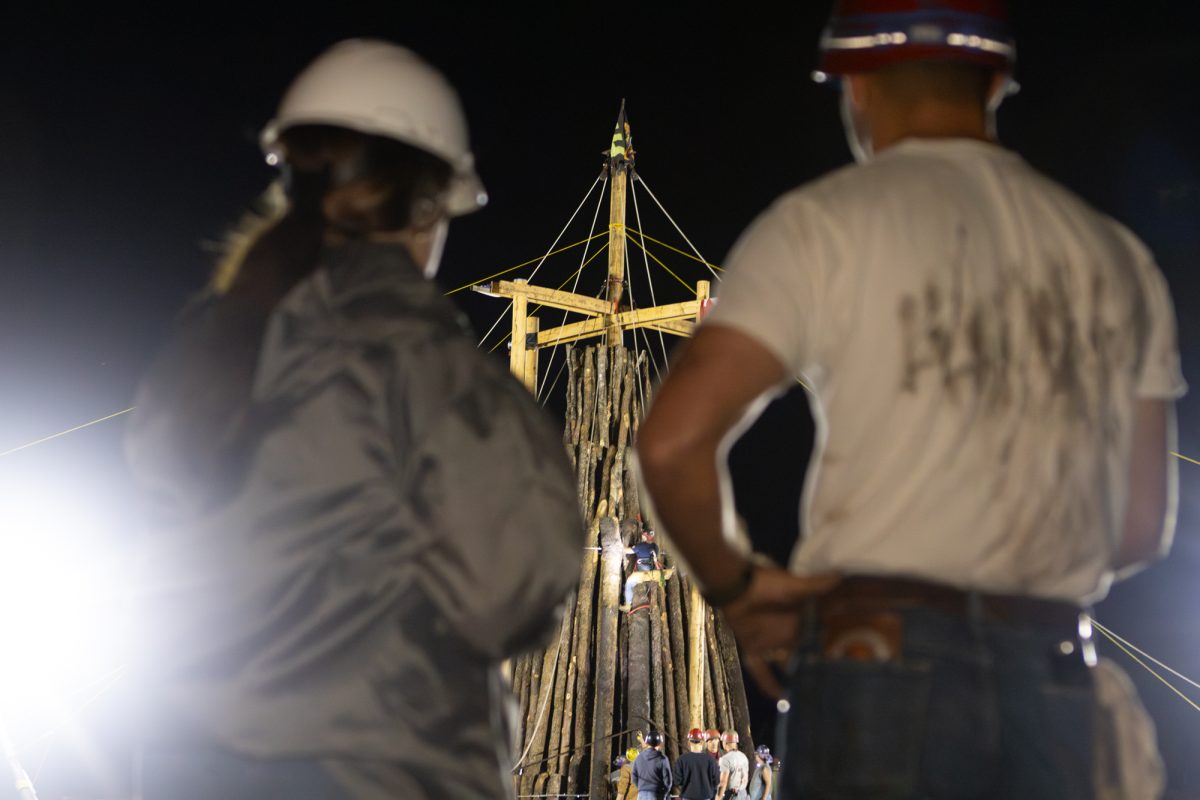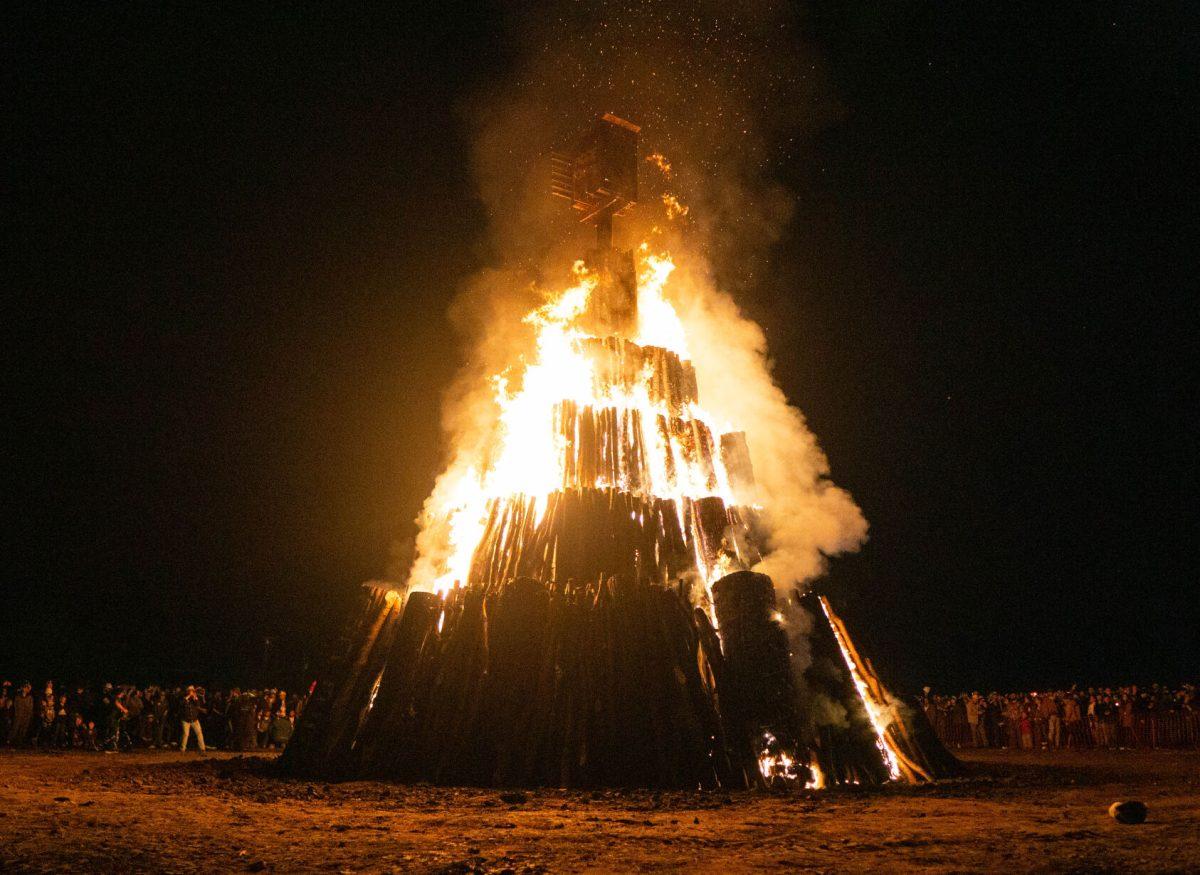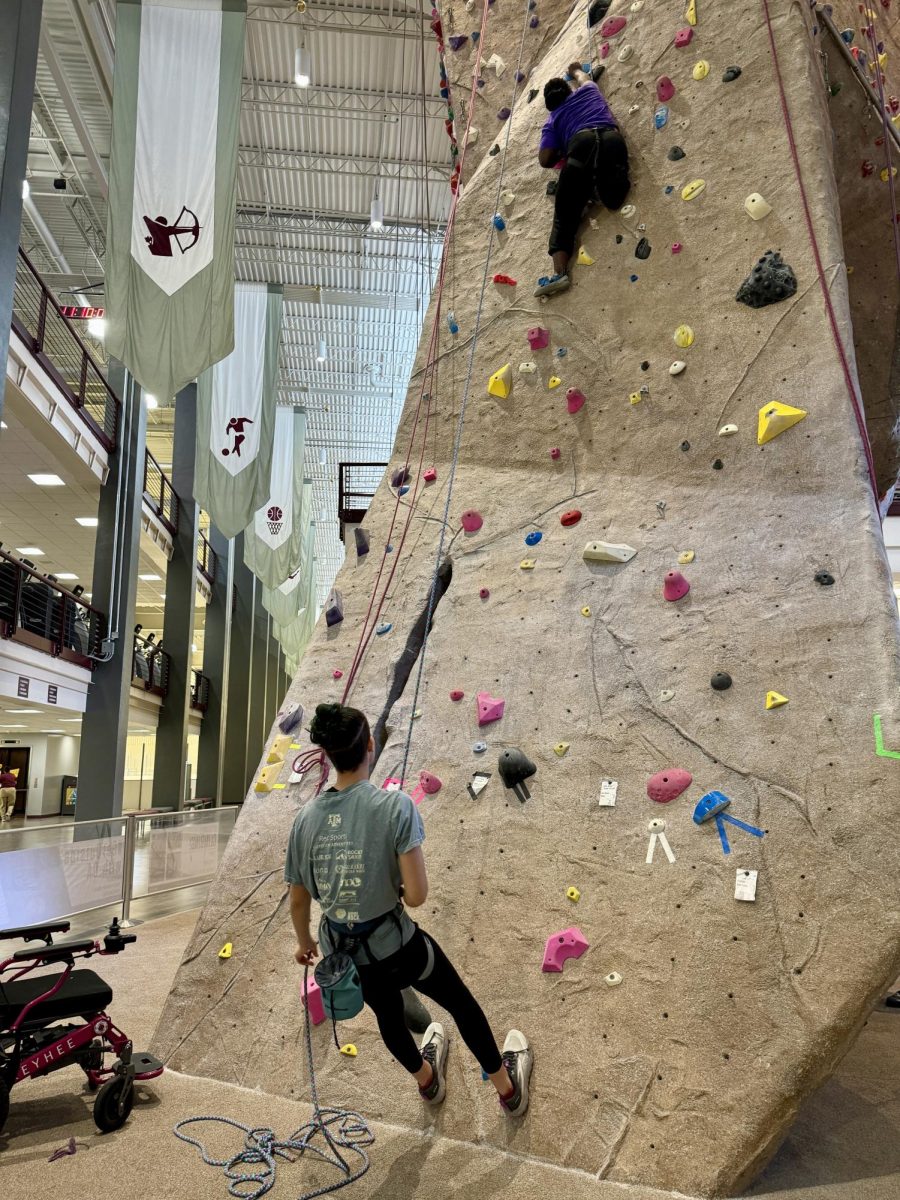Transgender Day of Remembrance is a time to honor those who have been killed due to anti-transgender acts of violence.
The GLBT Resource Center honored the occasion Thursday in the MSC with a vigil.
Transgender Day of Remembrance began in Boston, Massachusetts, when Rita Hester, whose murder remains unsolved, was murdered, said Sidney Gardner, program coordinator for the GLBT Resource Center. The Boston community held a candlelight vigil outside her apartment in reaction to her death.
“This was considered the inspiration for what has become an international act of remembrance for those who were killed in acts of anti-transgender violence,” Gardner said. “The following year a candlelight vigil was held in San Francisco and each year the remembrance has grown from very local vigils.”
The ceremony consisted of recalling the names of those who have fallen victim in the last year, as well as their age and day and cause of death.
Gardner said that although there has been progress made for marriage equality, that does not mean that better protections for LGBT-identified people have been put in place.
“Brazil and Mexico won judicial rulings last year that paved the way for national marriage equality, yet 113 transpeople were reported murdered in Brazil this year,” Gardner said. “31 were killed in Mexico. There were 10 murders reported of transpeople in the U.S. In Honduras three transpeople were reported killed for every two million inhabitants.”
Not everyone who was honored Thursday self-identified as transgender, though each was a victim of violence based on bias against transgender and gender-variant people, Gardner said.
“Some were friends, lovers and allies who were killed while they were with someone who was transgender, others may not have identified as such but were perceived to be somehow gender-variant by their attackers,” Gardner said.
Katie Stewart, executive director of Transgender Education Network of Texas, said though Thursday was a day of remembrance, there is hope for the transgender community as it has made headway in raising awareness. Suicide rates among transgender youth dropped from 67 percent to 4 percent when they’re raised in supportive homes, Stewart said.
“Especially when we create safe spaces, we take today as a day of sorrow, of reflection, a day of honoring the lives,” Stewart said. “And when we take that and we create safe spaces, people flourish.”
These safe spaces can be made merely by people becoming educated in how transgender people would like to be identified and treated, said Amanda Cunningham, political science freshman.
“I think there are a lot of micro-aggressions that people don’t really think about,” Cunningham said. “Like when somebody goes up to a counter and they’re presenting one way and they don’t really know the pronouns to use and they mess that up. So to a transgender person, they don’t realize how detrimental that is to them.”
This week, in addition to the annual day of remembrance, the transgender community is also mourning the death of one of its advocates, Leslie Feinberg.
“I think it’s extremely important to point out that we lost an amazing transgender author and activist,” Gardner said. “Technically Leslie would not qualify for this list because Leslie was not the victim of a murder at the hands of an individual or individuals, but Leslie’s death due to years of complications of secondary infections related to Lyme disease is also a crime that could be attributed to the same system that refuses to acknowledge, care for and understand the needs of transgender and gender non-conforming people.”
The nation’s ignorance of the transgender community was a major component to the loss of Feinberg, Gardner said.
“Our lack of understanding, inclusive and compassionate care for transgender people in our healthcare system was the biggest contributing factor to Leslie’s health decline and eventual death and was another painful reminder during a very somber time,” Gardner said.
Gardner said the Transgender Day of Remembrance is more than just a day of mourning.
“The Transgender Day of Remembrance is not just a memorial — I see it as an act of consciousness-raising and building awareness of the hatred and violence against transgender and gender variant people,” Gardner said. “It allows us the ability to honor the lives of those who might otherwise be forgotten, giving their silent lives new voice. Those who dared to live their lives authentically.”
GLBT Center vigil honors transgender remembrance
November 20, 2014

Cards honor victims of anti-transgender violence recognized Thursday in a GLBT Resource Center vigil.
Photo by Ateesh Tiwari
0
Donate to The Battalion
Your donation will support the student journalists of Texas A&M University - College Station. Your contribution will allow us to purchase equipment and cover our annual website hosting costs.
More to Discover








